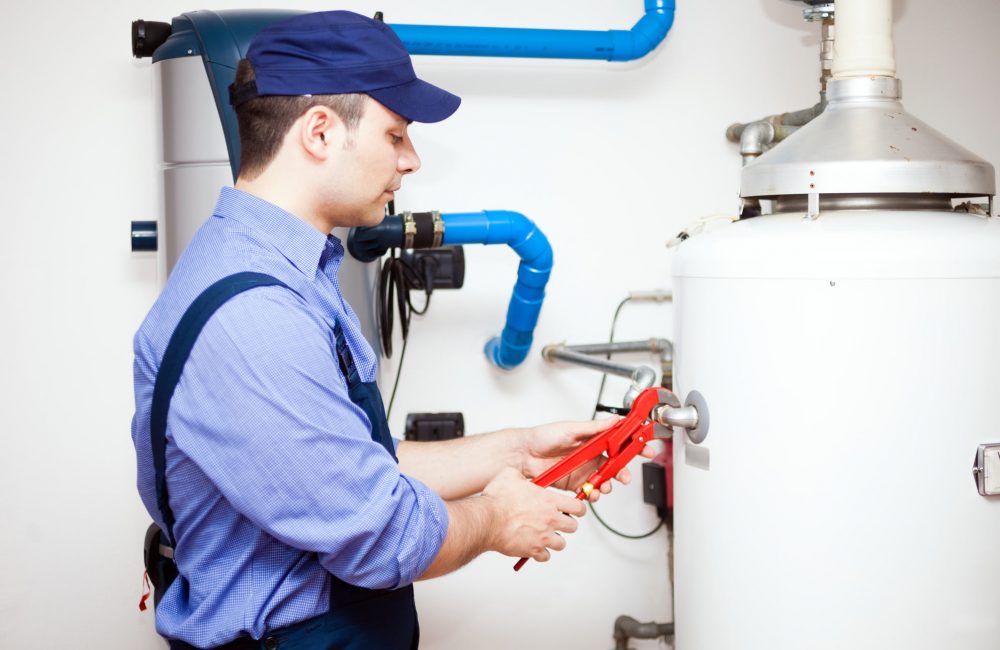Water Heater Repair & Replacement in Calgary
Don't let a broken water heater leave you shivering!
Our team of experts is here to provide top-notch water heater repair and replacement services to keep you cozy all winter long.
Hot Water Heater Repair & Replacement in Calgary
If you’ve noticed a sudden or gradual decrease in your homes hot water supply, it could be due to a malfunctioning or failing hot water heater. If you’re taking shorter showers or running one appliance at a time, it’s best to call in a professional as soon as possible. Shift Heating & Cooling Services Ltd offers fast and affordable hot water heater repair and replacement services throughout Calgary and surrounding communities.
Schedule your water heater service by calling our professionals at (587) 851-6003 or completing our online form.
5 Signs it’s Time to Replace Your Hot Water Heater
Hot water heaters don’t last forever, in fact, in most cases it’s hard to recognize that a water heater is on its last leg until it inevitably fails.
If you’re concerned that time is near, we’ve outlined some telltale signs that it might be nearing time for a replacement:
- Age: The average life expectancy for a traditional water heater is 8-10 years. If you start to notice a steady decline in performance of an aging system, it may be time to start planning for a replacement. If you don’t know the age of your water heater, you can find out by locating the unit’s serial number on the manufacturer’s sticker and give us a call.
- Leaks water: One of the most obvious signs of water heater failure is a leak. Not only can a leak cause a lot of damage, but it also suggests a new water heater is on the horizon and you should call an expert right away.
- Makes loud noises: Foul odors, gurgling drains, pooling sewage – to say that a sewer system backup is a catastrophe, is an understatement.
- High energy expenses: Did you know that water heating can account for 20+ percent of your monthly energy expenses? And it’s reasonable to assume that as water heaters age, this percentage will increase steadily. If your utility bills are getting out of hand, consider a more energy efficient water heater.
- Rusty water: Rusty water could be an indication that your water heater is rusting on the interior of the tank. It could also mean you have rusty pipes. Either way, it’s best to contact a plumber to evaluate the situation.


Tank vs Tankless Water Heater, Which One Is Right for You?
Regardless of its age, size, or style, one thing every home has in common is the need for a hot water heater. The two most popular types of water heaters are the more traditional tank-style and tankless, which is also referred to as on-demand. Both provide an excellent source of hot water but differ in a lot of ways. We’ve outlined these differences below so that you can make a more informed decision as to which is right for your home.
Standard water heater benefits:
- Lower Initial Installation Cost
- Life Expectancy 8-10 Years
- Hot Water Limited to Tank Size
- More Simplistic Design = Low Maintenance, Fewer Repairs
- Larger Footprint
- Not Energy Efficient
- Easy to Install
Tankless water heater benefits:
- Larger Upfront Investment
- Long Life Expectancy, 20-30 Years
- Endless Hot Water
- Requires Maintenance
- Small Footprint, Flexible Installation
- More Energy Efficient, Can Reduce Energy Consumption by Up to 25%
- Installation More Difficult & Intrusive
Call (587) 851-6003 to discover the Shift Heating & Cooling Services Ltd difference.
We look forward to serving you!
FAQs
Common signs that indicate a need for water heater repair or replacement include inadequate hot water, unusual noises coming from the heater, water leaks around the unit, rusty or discolored water, and an aging unit (typically over 10-15 years old).
Residential water heaters are available in various types, including traditional tank water heaters, tankless (on-demand) water heaters, heat pump water heaters, and solar water heaters, each offering unique benefits in terms of energy efficiency, space-saving, and continuous hot water supply.
To improve the energy efficiency of your water heater, consider insulating the hot water pipes, lowering the thermostat setting, performing regular maintenance such as flushing the tank to remove sediment buildup, and considering an energy-efficient upgrade to a newer model if your current unit is aging.
When selecting a new water heater, consider factors such as the size of your household, the available space for installation, fuel type (electric, gas, or solar), energy efficiency ratings, upfront and operational costs, and the desired longevity of the unit.
Water heaters should be serviced or maintained annually to ensure optimal performance and longevity. This typically involves flushing the tank to remove sediment, checking for leaks, testing the pressure relief valve, and inspecting the overall condition of the unit.
Upgrading to a more energy-efficient water heater can result in reduced energy bills, lower environmental impact, a continuous supply of hot water, longer warranty coverage, and potentially increased home value due to the appeal of energy-efficient appliances.
